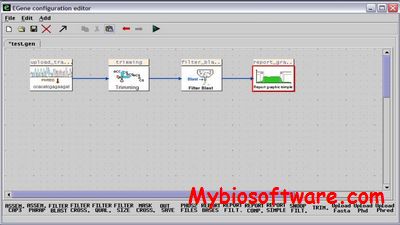SAAP-BS 1.0
:: DESCRIPTION
SAAP-BS (or SAAP-RRBS) Streamlined Analysis and Annotation Pipeline for Reduced Representation Bisulfite Sequencing) offers an end-to-end solution for analyzing and interpreting next-generation methylation sequencing data. The software integrates read quality assessment/clean-up, alignment, methylation data extraction, annotation, reporting, and visualization. With this package, bioinformaticians or investigators can start from sequencing reads and get a fully annotated CpG methylation report quickly allowing more time for biological interpretation.
::DEVELOPER
Bioinformatics Program, Division of Biomedical Statistics and Informatics, Mayo Clinic Research
:: SCREENSHOTS
N/A
:: REQUIREMENTS
- Linux
- Perl
- Java
- Python
:: DOWNLOAD
:: MORE INFORMATION
Citation
Bioinformatics. 2012 Aug 15;28(16):2180-1. Epub 2012 Jun 10.
SAAP-RRBS: streamlined analysis and annotation pipeline for reduced representation bisulfite sequencing.
Sun Z, Baheti S, Middha S, Kanwar R, Zhang Y, Li X, Beutler AS, Klee E, Asmann YW, Thompson EA, Kocher JP.
